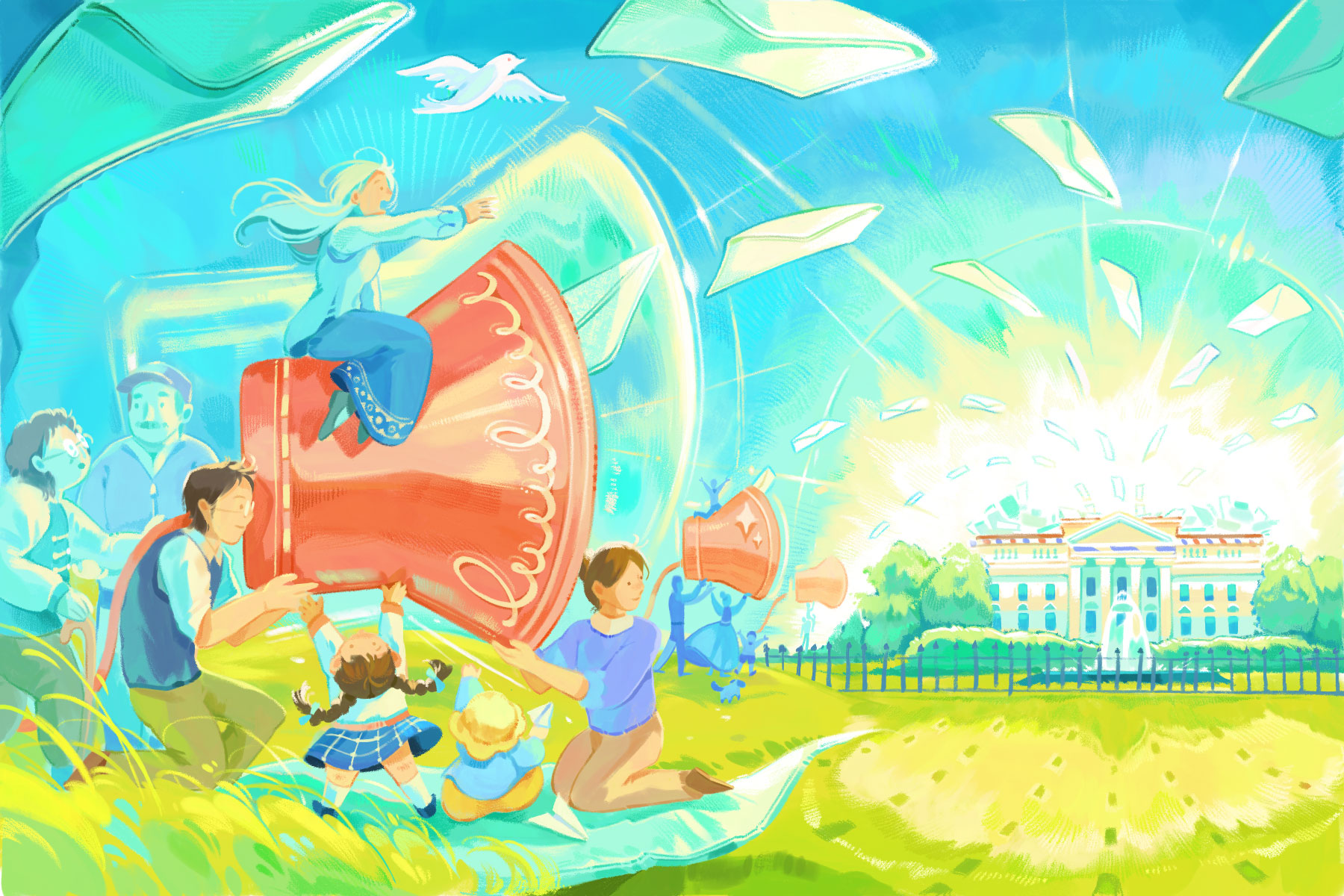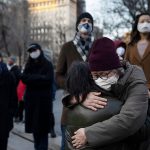This AAPI Heritage Month, we’re telling the untold stories of women, women of color and LGBTQ+ people. Subscribe to our daily newsletter.
When the 19th Amendment was ratified, citizenship was still available to only Black and White communities — and its full benefits largely to only White people. The Page Act and Chinese Exclusion Act were still being enforced, and in 1922 the Supreme Court denied Takao Ozawa citizenship because he wasn’t Caucasian. The following year, the same court reversed its logic and stripped Bhagat Singh Thind of his citizenship because his skin was too dark to qualify as White.
Many people in the AAPI community didn’t have full access to the ballot until at least 1975, when the minority languages provision of the Voting Rights Act was passed. In this election year — even as Vice President Kamala Harris, who is Black and Asian American, is on the ballot again — truly equitable participation in American democracy remains elusive for many.
In recognition of Asian-American and Pacific Islander (AAPI) Heritage Month, several AAPI staffers at The 19th have shared stories of making our voices heard in democracy.
A voice in our neighborhoods
The mass shooting at the Allen Premium Outlets in May 2023 still haunts me when I visit family in Dallas-Fort Worth. I think of the parents whose girls are gone. I think, repeatedly, of the boy who woke up to find his whole family gone. There are so many AAPI in North Texas, and yet the world felt small in our cousin group chat that week: One had gone to school with a victim’s sister. Another knew someone’s roommate.
We watched the area’s House member, Rep. Keith Self, criticize the lack of religious belief in people who called prayer an inadequate response to gun violence. And we thought, Who voted him in?
That, I could help answer.
It’s easy to find your government representatives. Looking for the whole family, though, gave me a lesson in gerrymandering. I spent 10 minutes quibbling with one cousin over whether his corner fell inside or outside the meandering boundary of Self’s district. I sent them lists of their respective national and state lawmakers, with notes about each person’s rhetoric and voting history.
It was such a small thing, but I hope it empowers them in November. None of them live in Self’s district — that decision will fall to different voters. But my family can make their voices heard in their own neighborhoods.
— Flora Peir, news editor
AAPI Heritage Month: Leaving our mark on American democracy
This story is part of our AAPI Heritage Month coverage. This month, we’re telling the stories of people who are carving out space as the nation gains new citizens and another generation of American-born AAPI people comes of age. Explore our work.
A voice for change
When my mom became a U.S. citizen in her mid-30s, she immediately petitioned for her mom’s (my Lola’s) green card. She was told the process should take less than six months, but more than a year passed with no progress.
Desperate, my mom reached out to a member of Congress, a man who was neither her nor Lola’s representative: Mike Pence. My mom had listened to Pence’s radio show for years and met him once at her church.
“In the Philippines, to do that kind of work, you have to find someone to bribe,” my mom said. “But here, I felt that lawmakers had a duty to perform, and they did it above and beyond.”
After multiple proddings from Pence’s office, Lola’s application was found at a Chicago immigration office, erroneously tucked behind another person’s paperwork.
The entire experience reinforced my mom’s perception of America as a place where change can actually happen through being vocal. Though naturally soft-spoken, she started attending local political party meetings, attending marches and wearing t-shirts and stickers that reflected her beliefs.
“Initially you are very afraid to advocate as an immigrant because you can be deported,” my mom said. “But after getting citizenship and finding that voice, I was able to say: ‘I actually can do this, show up and show my support for what I value — as a young family, Asian and an immigrant.’”
— Mariel Padilla, general assignment reporter
A voice at the ballot box
Voting has always been a family affair. My dad would take me into the poll booth, where I went from punching chads as a toddler to carefully lining up ink stamps for his ballot. That early experience instilled in me a sense of civic duty that I’ve carried across cities and states.
When I asked my dad why voting is important, he said it is just something citizens do. He was too young to vote when he lived in Pakistan; the first major election he remembers voting in was in 1994, when Proposition 187 was on the ballot in California. He participated in debates over the anti-immigrant ballot measure at work, when previously he had stayed quiet because he did not want to call attention to the fact he wasn’t a citizen.
Several of my father’s coworkers didn’t believe undocumented immigrants should have access to state public services, despite tangibly contributing to the state’s economy. He voted against Proposition 187, but it passed with 59 percent of the vote. It was eventually ruled unconstitutional.
Before Super Tuesday this year, my dad told me how to fill out a sample ballot online so I could scan a QR code poll pass on election day. But I chose to go into the poll booth. Even though I was tapping on a screen, there’s still something special and exciting during Election Day, and I wanted to experience it in full.
— Jasmine Mithani, data visuals reporter





